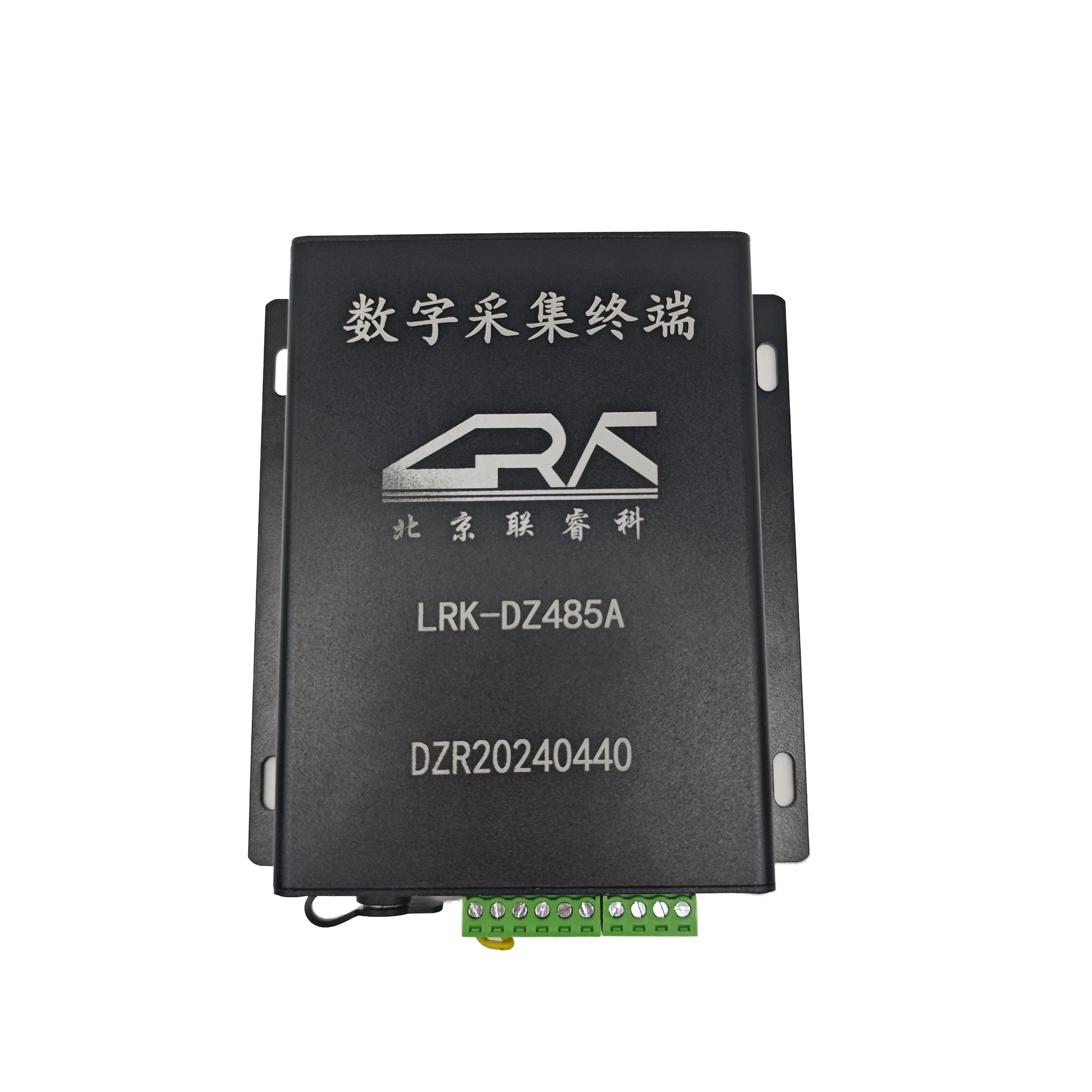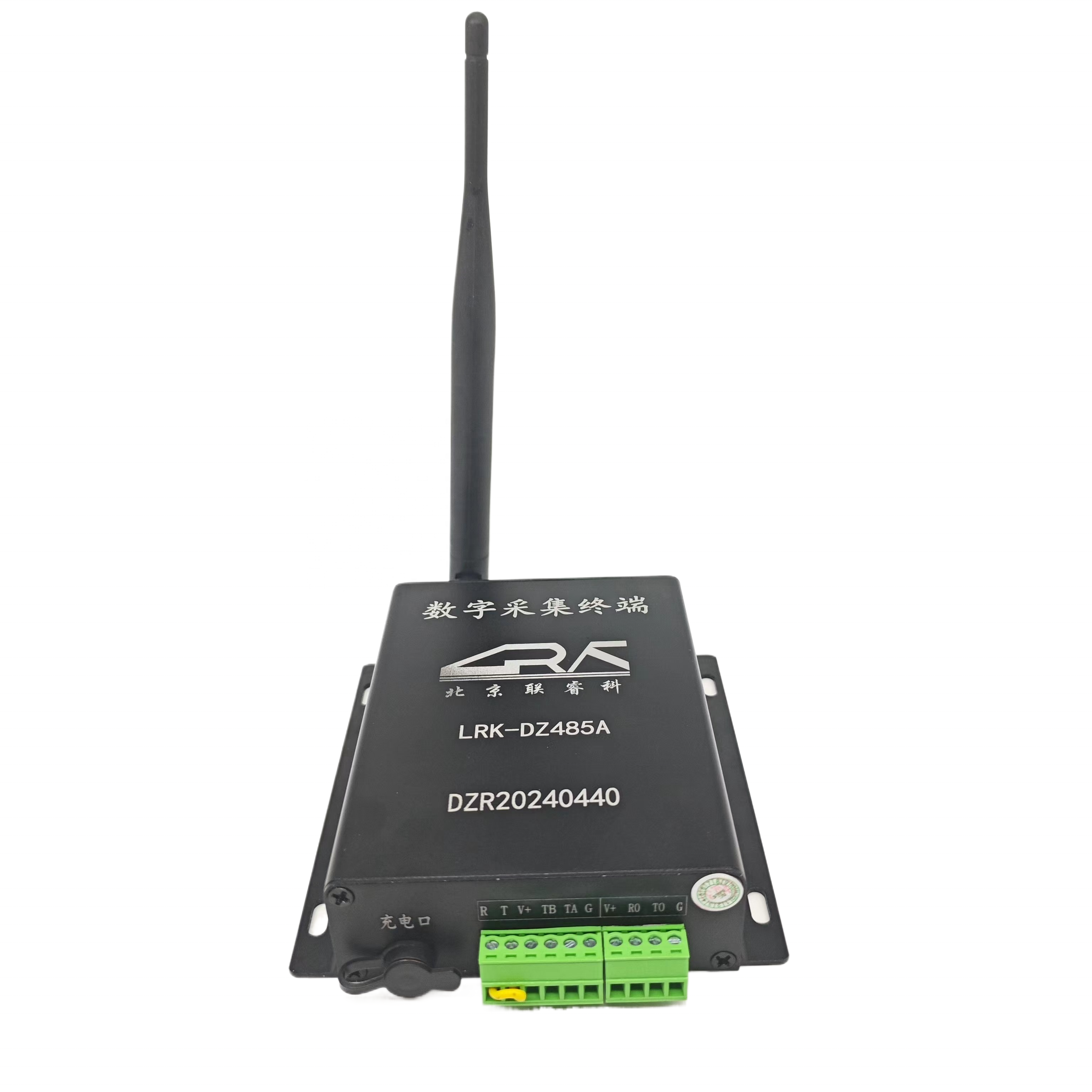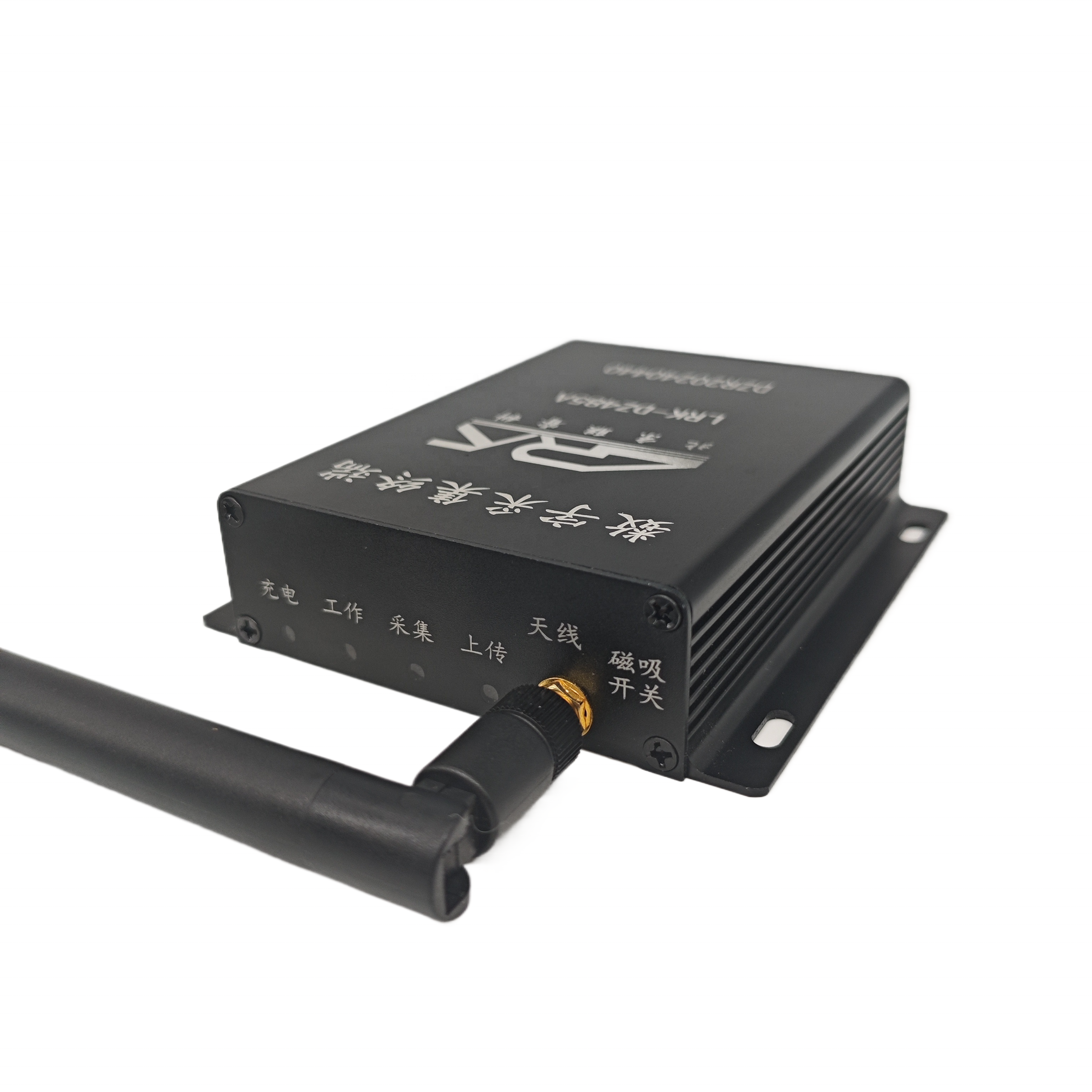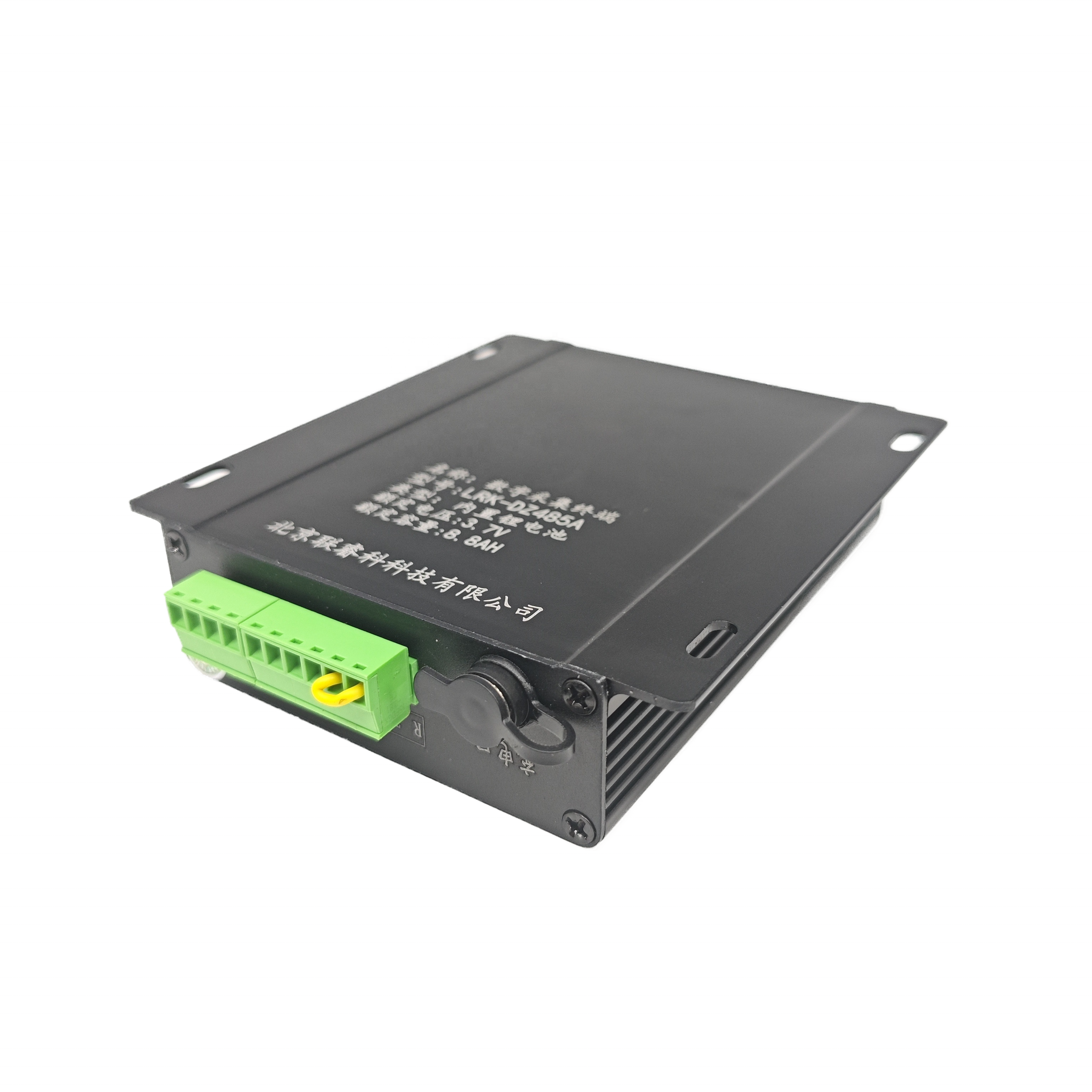Product Overview
LRK-DZ485A (hereinafter referred to as 485A) is used to collect sensors with 485 digital communication protocol. It can simultaneously sample and upload data from multiple sets of sensors (40 inclinometers, 16 static level gauges, and 16 osmometers) to a digital platform. Users can set the sampling and feedback interval of 485A through the serial port or platform according to their needs. 485A will automatically sample and feedback at the set interval. The 485A is equipped with a large capacity 6000mAh lithium-ion battery, which can meet the needs of long-term monitoring.
Product Features
Multi purpose collection terminal;
Mobile IoT mode transmission enables remote monitoring;
The terminal automatically wakes up, facilitates installation, reduces manual operation, and has no physical buttons;
Automatic sleep, automatic wake-up, long standby time;
Supports transparent transmission mode and can connect various types of digital sensors;
The built-in lithium battery can be powered by external solar energy.
Application Area
| Project | Parameter |
|---|---|
| Transmission mode | Mobile Internet of Things |
| Minimum sampling transmission interval | 10 minutes |
| Sensor type | 458 Digital Sensor |
| Output voltage | 12V500mA |
| Power supply method | Lithium batteries, solar panels |
| Wake up method | Timed wake-up, magnet power on |
| Size and size | 125X80X30mm |
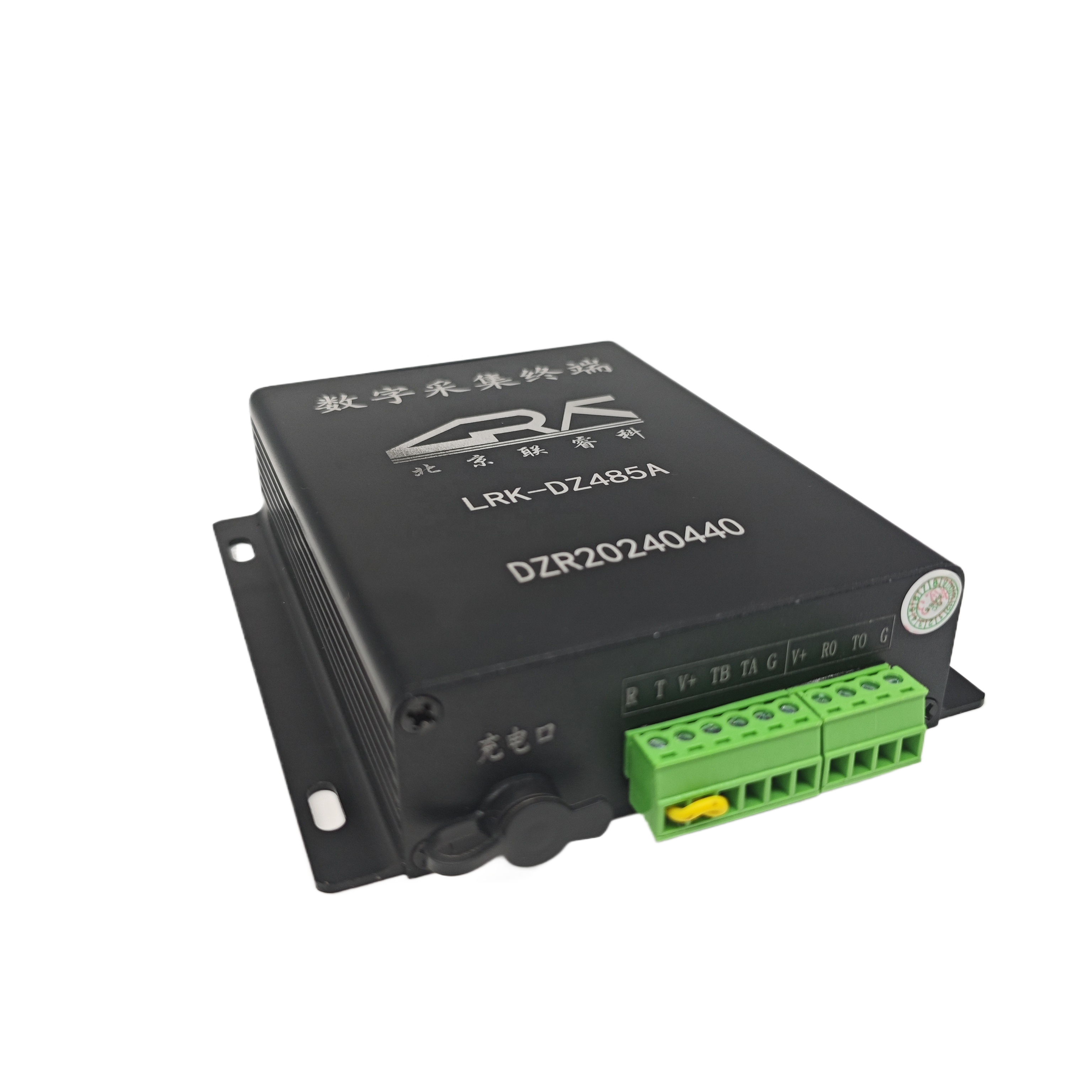
Application Area
1) Environmental monitoring
In the field of environmental monitoring, LRK-DZ485A can be used for air quality monitoring stations, water quality monitoring points, soil moisture and temperature monitoring, etc. By connecting various 485 digital sensors such as air quality sensors, water quality analyzers, soil moisture meters, etc., real-time environmental parameter data is collected and uploaded to the central monitoring platform through mobile IoT technology, achieving remote monitoring and data analysis of environmental quality.
2) Industrial automation
In the field of industrial automation, LRK-DZ485A can be applied for data acquisition and monitoring on production lines. By connecting with sensors on the production line, real-time data on temperature, pressure, flow rate, liquid level and other parameters during the production process is collected and uploaded to the production management system. This helps enterprises achieve real-time monitoring, data analysis, and optimization of the production process, improving production efficiency and product quality.
3) Intelligent Agriculture
In the field of intelligent agriculture, LRK-DZ485A can be used for monitoring farmland environment, crop growth, etc. By connecting with sensors such as soil moisture meters, thermometers, and light meters in farmland, real-time environmental parameter data is collected and uploaded to the agricultural management system through mobile IoT technology. Farmers can use this data to understand the real-time situation of farmland, develop scientific planting plans, and improve crop yield and quality.
4) Geological monitoring
In the field of geological monitoring, LRK-DZ485A can be used for geological hazard warning, groundwater level monitoring, etc. By connecting with sensors such as inclinometers, static level gauges, and osmometers, real-time geological parameter data is collected and uploaded to the geological monitoring platform through mobile IoT technology. This helps the geological department to promptly identify potential geological hazards and take effective measures for early warning and prevention.
5) Building Automation
In the field of building automation, LRK-DZ485A can be used for environmental monitoring and energy management in intelligent buildings. By connecting with temperature sensors, humidity sensors, lighting sensors, etc. inside the building, real-time indoor environmental parameter data is collected and uploaded to the building management system through mobile IoT technology. This helps building managers achieve automatic adjustment and optimization of the building environment, improving the comfort of living and working.


